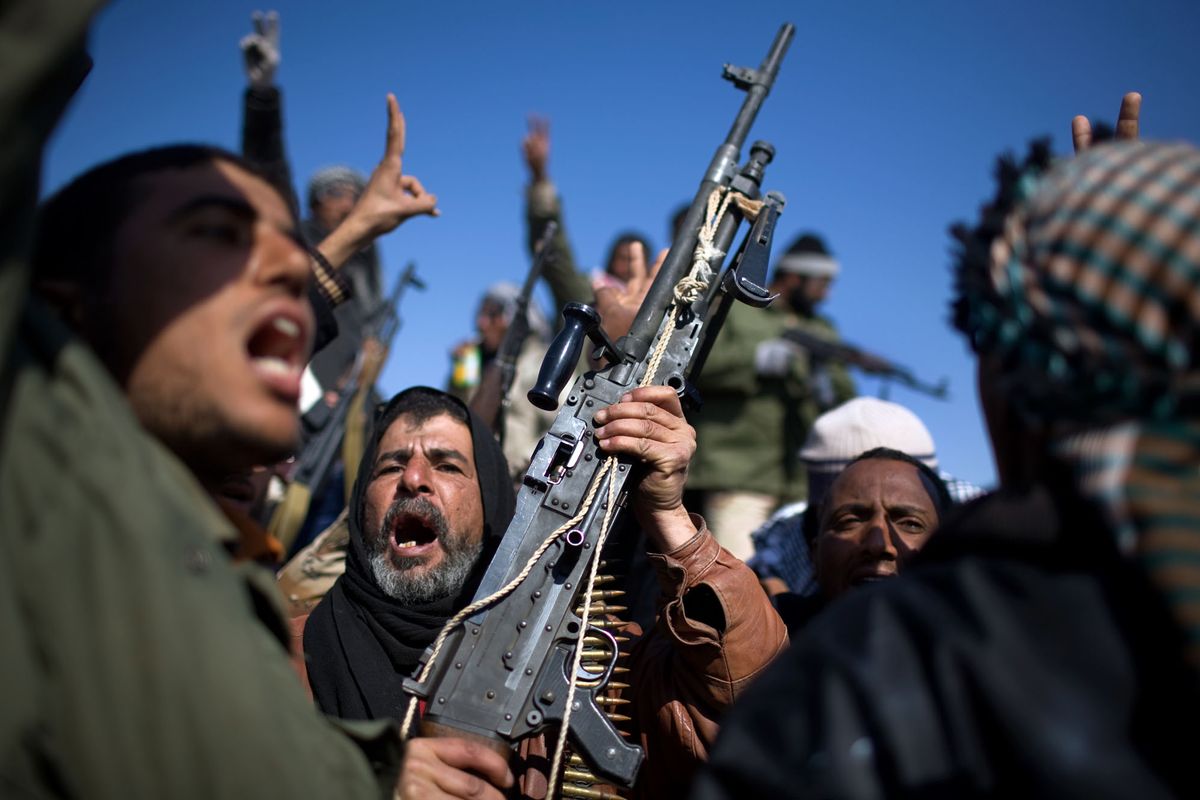This column reflects the opinion of the writer. Learn about the differences between a news story and an opinion column.
Shawn Vestal: Photographer focuses on human impact

Think you’ve had a crazy year? Try Holly Pickett’s nerve-rattling 2011: A bombing in Alexandria, Egypt. Revolution in Tunisia. Revolution in Egypt. A detour to Oman. More revolution in Cairo and Morocco. Then a couple of stretches in Libya, running for her life with the overmatched rebels.
“I’m here at a really incredible time in history,” said Pickett, a former Spokesman-Review photojournalist whose arresting images have appeared all over the world. “I never thought I would see what I’ve seen in the past few months. From that standpoint, I’m really thankful and glad to be doing the job I’m doing – so yeah, I love it.”
Pickett is bearing witness to a revolutionary time. For a lot of us who know her, there’s a combination of intense admiration and concern as she puts herself in harm’s way again and again. It’s hard not to wish for something more comfortable for her. Something safer.
But when you see her photographs – children scarred by war, a woman weeping before a bullet-pocked wall, men praying in the rubble of a Gaza mosque – it’s impossible to wish that they didn’t exist. Pickett’s work is the best and bravest kind of journalism, and it’s a dose of medicine that we need badly here in navel-gazing America.
Pickett – an energetic, enthusiastic presence who was a tonic for us grumpy souls in the newsroom – is not the person you might expect to be a war photographer. In fact, it would be wrong to consider her one. It’s not conflict, per se, that interests her. It’s the human impact.
“I feel strongly about documenting that side of conflict,” she said in a recent phone interview from Cairo. “I think it’s important for people to remember a person is not a number. A person who is killed by a weapon or by a bomb is not a number. It’s a person, and maybe if you lived in that town you would know that person.”
A native of Butte, Pickett has been living in Cairo and freelancing for three years. Her photos have appeared on the front page of the New York Times and everywhere else.
Her year opened with a bombing in Alexandria, which she covered for a few days before heading to Tunisia. Then Egypt exploded – the popular uprising kicked off Jan. 25, drawing journalists from all over the world.
“It’s hard to compete with that,” she said. “But I couldn’t not shoot it. I couldn’t not cover it. It’s where I live. I felt the same way about Libya. I was drawn to it.”
She and some fellow journalists entered Libya on March 10, traveling to the northeastern city of Benghazi on the Mediterranean Sea. A day later, they were at the front, near Ras Lanuf, a port and oil refinery complex. The rebels – after some initial gains – were being beaten back by the airpower and superior weaponry of Moammar Gadhafi’s troops, she said.
“We just walked into this very chaotic scene,” she said. “There were airstrikes. There were people firing their weapons into the air. There were missiles going off. There were things on fire. There was black smoke billowing over the entire area. It was wild. It was surreal. …
“We ended up just making a run for it. It was pretty scary,” she said. “That was the first day, and it’s like – ‘Whoa.’ ”
They found a house to stay in and went to a checkpoint on the main highway the following day – and that was bombed. The next day, another checkpoint, another series of airstrikes. At one point in the subsequent days, their driver left them, and Pickett returned to Benghazi. There, she heard reports that the city she just left, Ajdabiya, had fallen. She tried to get in touch with some of her colleagues from the New York Times, without success.
“It’s one of those things that hits you in the gut,” she wrote in an online message. “I just thought, this can’t be good. We had all talked about the dangers to be avoided in Libya, and being captured by (Gadhafi’s) forces was very high on the list. Nobody really knew what had happened to them – they just disappeared – but that’s what seemed likely.”
The four Times journalists were kidnapped and held for six days. Pickett and a lot of other journalists got out of Libya at that point, on March 16. But she returned soon afterward for several more days of battles and bombing. At one point, as she crouched behind a dune during a battle, a tank shell landed nearby.
“I could hear it,” she said. “I could hear the metal sound, but it didn’t detonate. It didn’t go off.”
Pickett says she tries to be careful – to listen to her instincts, to be wary of where she goes and to work with others. She says she can get scared sometimes, but tries to focus on the work.
“It’s interesting, unpredictable and I get to do something I think is worthwhile, which is the best,” she said. “It feels like something I’m supposed to be doing.”
